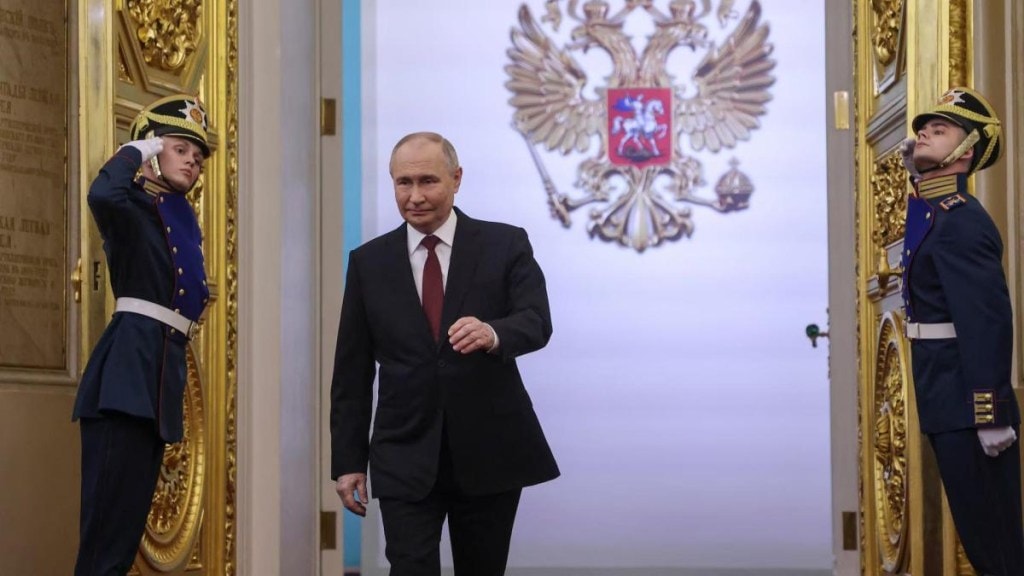In a significant development, Russian President Vladimir Putin has publicly expressed openness to India’s mediation efforts in the ongoing war between Russia and Ukraine. His remarks come ahead of the much-anticipated BRICS summit next month in Kazan, where the leaders of Brazil, Russia, India, China, and South Africa will convene. Putin’s suggestion that India, along with China and Brazil, could mediate peace talks has stirred diplomatic discussions, with India’s position as a potential peace broker gaining traction.
Putin’s Surprising Endorsement of BRICS Mediation
Speaking at the Eastern Economic Forum (EEF) in Vladivostok, Putin acknowledged past efforts to mediate peace between Russia and Ukraine, including an agreement reached in Istanbul during the early weeks of the war. However, he lamented that the terms of that agreement were never implemented, largely due to Western interference, in his view. Putin emphasized the potential for renewed negotiations and suggested that BRICS countries—specifically India, China, and Brazil—could play a pivotal role in facilitating peace.
“India, China, and Brazil can mediate peace talks between Russia and Ukraine,” Putin stated. He also hinted that previous peace efforts, such as those led by Turkey, could serve as the foundation for future dialogue. His remarks signal Russia’s shift towards multilateral mediation, with a clear focus on engaging emerging powers like India.
India’s Role in the Ukraine Conflict
Prime Minister Narendra Modi has maintained a delicate balance in India’s diplomatic stance, engaging with both Russia and Ukraine while advocating for peace. Modi’s visit to Russia on July 8, where he held direct talks with Putin, reinforced India’s longstanding ties with Moscow. Modi subsequently visited Ukraine on August 23, where he met with President Volodymyr Zelensky. During this meeting, Modi made it clear that India is willing to mediate in peace talks, provided that Russia is genuinely open to negotiations.
Modi’s efforts have positioned India as a neutral party with the potential to bridge the gap between Russia and Ukraine. His diplomatic engagement with both nations, as well as with Western powers like the United States, adds credibility to India’s role as a peace broker.
A Call for Renewed Peace Talks
Putin’s comments at the EEF underscored his desire to reignite peace talks based on earlier agreements, potentially involving BRICS nations. He noted that previous negotiations were derailed due to external pressures, particularly from Western countries. “The negotiations in Istanbul during the first week of the war could have laid the groundwork for a resolution,” Putin said. He also expressed interest in a second Peace Summit, potentially hosted in India, further highlighting India’s importance in the peace process.
International Reactions and U.S. Support
The international community has taken note of India’s potential role in mediating peace. The US has also expressed support for India’s efforts. In a recent phone call between President Joe Biden and Prime Minister Modi, the two leaders discussed various global issues, including the Ukraine war. US National Security Communications Advisor John Kirby emphasized that “America welcomes any country that wants to help end the conflict in Ukraine,” adding that India could play a crucial role in brokering peace.
This sentiment echoes the growing consensus that India, with its strong ties to both Russia and Ukraine, is uniquely positioned to mediate a peaceful resolution.
Russia’s View on India’s Influence
The Russian Foreign Ministry has lauded India as an influential global power that pursues its foreign policy based on national interests. Moscow has reiterated its willingness to continue discussions with India on the Ukraine issue. This acknowledgment further cements India’s position as a key player in international diplomacy.
However, Putin remains firm on certain conditions for peace talks, including Ukraine’s non-membership in NATO and the withdrawal of Ukrainian forces from the Donbas region, conditions that remain contentious for Kyiv and its Western allies.

